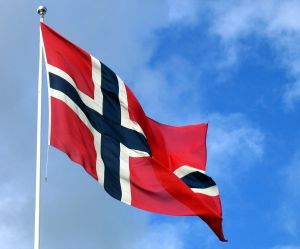
Summary: The role of bureaucrats from Norway in defending (or not) the rights of EPO workers -- rights that the EPO's management is actively trying to deny and punish for
TECHRIGHTS has received a pointer to an interesting comment which appeared on the IPKat blog a few weeks ago.
"The comment," we were told, "includes a link to a copy of a letter from the Norwegian Department of Labour which gives the opinion of the Ministry about the proposed Strike Regulations (i.e. the ones which were declared to be in breach of fundamental principles of international law by the Dutch Appeal Court)." (we will cover the Dutch situation some other day)
"As can be seen from the letter," said our source, "the opinion of the Department of Labour about the proposal was basically negative.
"We are currently trying to find out how the Norwegian delegation voted on that proposal.
"Similar information could probably be obtained from the Ministries of other EPO member states using freedom of information legislation."
Here is the
original document [PDF] and a translation. The text is copied below.
From The Royal Norwegian Department of Labour
To the Department of Industry and Commerce
Your ref 13/1395 Our ref 13/2220 Date 26.06.2013
Request for input concerning proposals to regulate the right to strike at the EPO – The European Patent Organisation
We refer to the inquiry of 24 June [2013] concerning the above.
The right to strike is regulated in several international instruments ratified by Norway, inter alia ILO Convention No. 87 and No. 98 on the right to self-organise and engage in collective bargaining, and the Council of Europe Social Charter. The right to strike is seen as a natural and necessary consequence of the right to organize and engage in collective bargaining. Strikes are however a powerful tool and the right is not absolute. The right to strike and limitations of the right to strike have evolved over time and are defined by the ILO and the Council of
Europe expert committees. The Department of Labour is not aware of whether international organizations have regulated the right to strike more in detail. From our starting point, we do not believe this is especially common because it intervenes in an area that naturally falls within the negotiation area of employers and workers organizations. The Department of Labour is therefore skeptical about a solution with an administrative regulation and about the content that, at a quick glance, seems extremely dubious in respect of its compliance with applicable international conventions.
Our suggestion would be that Norway request more info concerning how the right to strike is formulated in other organizations, and that the EPO takes no position on the proposal at the present time. A natural partner for the EPO
administration would be the ILO office in Geneva. With greetings,
Bodil Stueflaten Gundla Kvam
Acting Division Director Technical Director
Room is being left here for interpretation.
⬆

